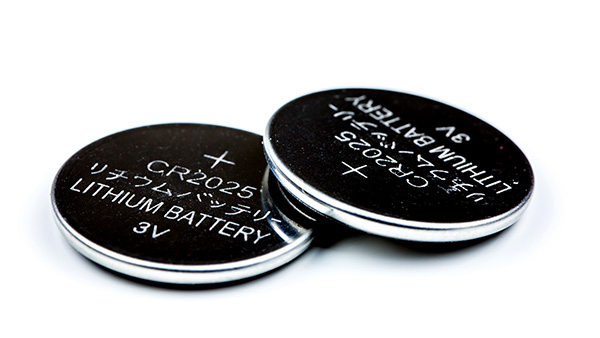
Tiny batteries get lost in mounds of waste; it’s better to recycle them.
Lithium-ion batteries store lots of power in a small, lightweight format, making them a popular component of consumer products from laptops to e-cigarettes. Unfortunately, few of us consider how to dispose of batteries when we are finished with them, and the results may be fueling one of the biggest emerging problems in the world of waste: fires.
Every year, recycling plants battle hundreds of battery-caused blazes, as reported by Waste 360, a recycling trade industry website, in its “February 2020 Fire Report: 2019 Waste and Recycling Summary.” Improperly discarded batteries – especially rechargeable, lithium ion batteries – can also cause fires in recycling trucks, harm the environment or endanger health.
Unlike other common fire threats to recycling facilities, such as propane tanks, aerosol cans and discarded fireworks, batteries are small and often impossible to spot. A lithium-ion battery in a singing greeting card or a discarded e-cigarette pen is enough to spark a flame, but among the huge piles of waste, they are virtually invisible.
Why do lithium-ion batteries have such potential to cause fires? Batteries can blow up or melt when internal electrical components short-circuit, when mechanical problems crop up after an item is dropped or involved in an accident or when batteries are installed incorrectly.
Imagine the existing waste and recycling life cycle from trash to final separation: An infinite number of danger points could lead to damage to a tiny lithium-ion battery, increasing the risk of a mini explosion.
Why don’t we recycle lithium-ion batteries along with our other recyclables? In practicality, they are so small they can sneak into many places where they do not belong. Additionally, chances are high the batteries are going to be damaged when being exposed to the “rough and tumble” environment of waste and recycling facilities. When these mini explosions occur out of sight or after hours, they can cause significant damage.
Consumers can help prevent fires and limit environmental damage by keeping lithium-ion batteries out of their trash or recycling bins. Instead, the Environmental Protection Agency recommends that these batteries go to a household hazardous waste collection point or a specialized recycling center. Many of the “big box” home centers, electronics retailers or battery and lightbulb stores offer to collect batteries for recycling. Mail-in services are available if you cannot find a recycling outlet near you.
TO FIND A RECYCLING OUTLET
Call2Recycle also has a Facebook page
This loss control information is advisory only. The author assumes no responsibility for management or control of loss control activities. Not all exposures are identified in this article. Contact your local, independent insurance agent for coverage advice and policy service.
